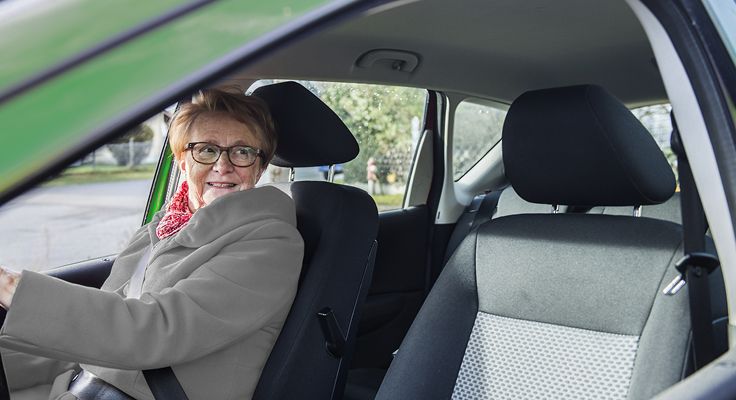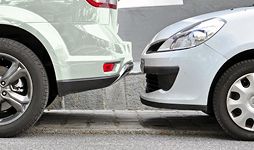Excess is a part of car insurance that needs to be carefully considered when purchasing and renewing a policy. It’s important you’re aware of the different features that make up your car insurance.

What is car insurance excess?
Car insurance excess is an amount you have to pay in the event of a claim. There are two types of excess; compulsory and voluntary. An insurer sets your compulsory excess and you choose your voluntary excess. Both amounts are automatically added together and this is what you will have to pay in the event of making a claim.
The amount of excess you pay when you claim may vary depending on:
- The voluntary excess amount you chose to pay
- The type of claim
- Your age
- Your driving experience
- The make and model of your vehicle
The amount you pay is outlined in your policy schedule. It’s also important that you only purchase or renew your car insurance policy if you’re happy with the excess amount.
Why is there an excess?
Insurance is designed to cover you for the more expensive claims that you couldn’t settle by yourself. If there was no excess set, then this may encourage third-party drivers to claim for minor damage such as scrapes and scratches on bodywork.
How does car insurance excess work?
Excess is the amount you pay towards getting your car fixed. This amount will be agreed upon between you and the insurer when you purchase a policy. Imagine that you have an agreed excess to pay of £100. Your car is damaged in an accident and the cost to get it fixed is £500. You would pay £100 and then the insurer would pay the remaining £400.
What is the difference between voluntary and compulsory excess?
Compulsory excess
This is the fixed amount pre-set by your insurer to be paid if you make a claim on your car insurance. The excess level tends to be higher for new drivers with less driving experience, or those who drive high-performance cars - depending on the car's insurance group.
Voluntary excess
Voluntary excess gives you control over the cost of your car insurance. You decide how much to pay. Added to your compulsory excess, you will need to pay both in the event of an accident so make sure you can afford to pay this amount.
You may either choose a lower voluntary excess for a higher premium, or a higher voluntary excess for a lower premium. You can choose not to pay a voluntary excess, but it may increase the cost of your premium.
When do you pay the excess on car insurance?
You will need to pay excess when you make a claim on your own insurance.
What if I can't pay my excess?
If you’re worried about not being able to pay excess, contact your insurer to find out options available to you. If you hold a policy with us, please contact us as soon as possible. We’re here to help.
Do you pay the excess if you aren’t at fault?
You will need to pay your excess if you’re in an accident and you make a claim, even if it wasn’t your fault. The good news is you may be able to recover this amount from your car insurance provider if there is evidence that the accident was someone else’s fault.
Do you pay the excess if the other driver isn’t insured?
We can't speak for other insurers but with MORE THAN you will need to pay your excess. However, our Uninsured Driver Promise means that this will be refunded if the other party isn't insured. The driver will need to be identified as uninsured and the claim will need to be settled in your favour for the refund to take place. Also, as part of the Uninsured Driver Promise, if your No Claim Bonus was reduced at your policy renewal after being in an accident with an uninsured driver, it will be reinstated with any premium you’re owed.
When won’t you have to pay an excess?
There are a few instances that you won’t need to pay your excess when making a claim. Some examples include:
- If a driver has crashed into the back of you
- If you’re in an accident and the other driver admits they were at fault (known as accepting liability)
Can I change my voluntary excess?
When it’s time for you to renew your car insurance policy, this is a good opportunity for you to look at your voluntary excess amount. By altering the amount of excess you voluntarily pay, you can see what effect it has on your quote. Make sure the amount set is an amount you are able to pay for the duration of your new car insurance policy if you need to make a claim.
Should I increase my excess?
Increasing your excess can come with some benefits. The higher the amount of excess you can pay, the cheaper your premium will be. It suggests you’re less likely to make low-value claims and reduces the amount an insurer will have to pay out should you make a claim.
If you increase your excess, you must be sure you are able to pay this should you make a claim.
I don't want to increase my excess; how else can I lower my insurance?
If increasing your excess isn’t an option for you, there are other ways to help lower the cost of your premium.
How to make a claim
Your insurer will be able to guide you on how to make a claim. Typically, it will involve providing information such as:
- Your car registration, make and model
- Details of what happened and when
- Details of any other people and vehicles involved
- Contact details of any witnesses
- A crime reference number if your claim involves theft or vandalism
If you’re a MORE THAN customer, you can find out more about making a claim here.
When should you make a claim?
Every time you make a claim this may affect how much you pay when you come to renew. You should always report incidents to your insurer, but if the costs are relatively low and you can afford to pay for the damage yourself, such as a broken wing mirror, then do so. This will keep your no claim bonus intact which will help to keep costs low in the future.
If you’ve been involved in an accident your first priority should be your safety and to call for medical help if you or anyone else is injured.


